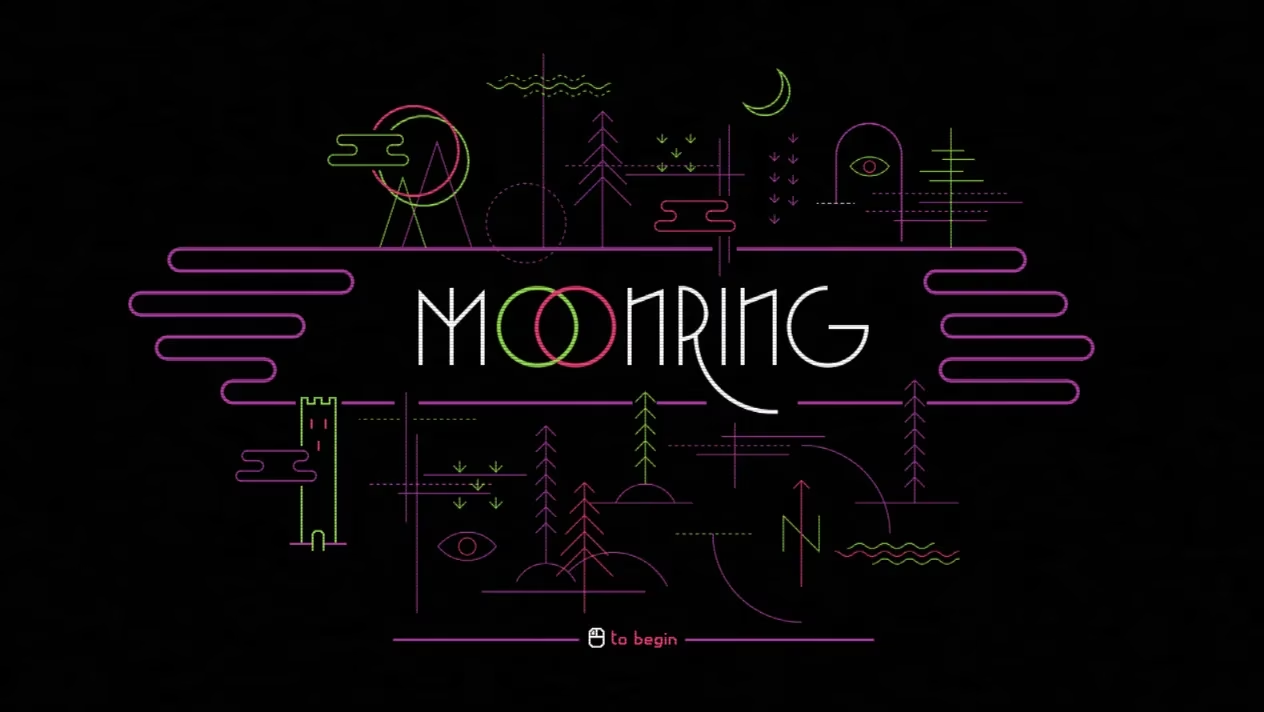I still remember the day I stumbled upon Moonring in 2023, like finding a perfectly preserved vinyl record in a digital streaming world. As someone who grew up obsessively playing Ultima and Fable, discovering that Fable's co-creator Dene Carter had quietly released this passion project on Steam felt like uncovering a secret treasure map. Now in 2025, after countless playthroughs, I'm convinced this free gem is more than just a nostalgia trip – it's a living museum exhibit showcasing gaming's lost artistry. The stark black backgrounds dotted with neon-bright sprites immediately transported me back to my childhood bedroom, huddled over a CRT monitor at 2 AM. Carter didn't just recreate retro aesthetics; he bottled the very soul of that era when games weren't afraid to let players drown in mystery.
A Kaleidoscope of Ever-Changing Dungeons
Moonring's hand-crafted world operates like an intricate clockwork mechanism where every gear interacts with others in surprising ways. Those shifting dungeons? They're not randomly generated but deliberately reconfigured like a master puzzle-box designer rearranging challenges between visits. I've died seventeen times in the Crimson Catacombs alone, yet each return revealed new pathways and secrets – proof that Carter respects players enough to let us discover rather than guide us.
-
Lunar-powered mechanics that make your skills ebb and flow with moon phases
-
Over 100 enemies ranging from adorable mushroom folk to Lovecraftian shadow gods
-
Secret ship combat sequences appearing like sudden storms on the pixel-art sea

The real magic happens when you type keywords during NPC conversations – an experimental feature that feels like whispering spells into an ancient tome. I once spent three hours typing celestial terms until accidentally unlocking a hidden astrology system! This isn't just gameplay; it's archaeological excavation where every pixel might hide lore fragments.
Generosity Forged in Pandemic Fire
What still astonishes me in 2025 is that this 30-hour masterpiece costs absolutely nothing. Carter's decision to make it permanently free feels like someone planting a money tree in a concrete jungle – radical, life-affirming, and gloriously impractical. When the pandemic hit, he could've easily charged $15 for this Ultima-inspired marvel. Instead, his Steam comment cuts to the heart of it: "Life is hard, Covid sucked, everyone’s poor and stressed, I don’t need the $300 this would make me."
Playing Moonring sometimes feels like receiving a hand-written letter in an age of spam emails. There's tangible care in every system:
| Feature | Old-School Charm | Modern Polish |
|---|---|---|
| Exploration | Zero quest markers | Environmental storytelling |
| Combat | Turn-based tactics | Fluid animations |
| Progression | Hidden mechanics | Balanced difficulty |
That promised "goodwill" has only grown over two years – Carter's kept updating it while stubbornly resisting monetization. In an industry drowning in microtransactions, this stands as a lighthouse reminding us games can be pure gifts.
Time Travel Through Pixels
Moonring achieves something rare: it functions as both time machine and teaching tool. For veterans, those stark black backgrounds and text-based secrets are like tasting your grandmother's signature dish after decades – instantly transporting you through flavor memories. For new players? It's a Rosetta Stone deciphering gaming's hieroglyphics. Carter himself put it perfectly: he wants veterans to "recapture some of the spirit" while letting newcomers "catch a glimpse of what we did 40 years ago."
I've watched younger players stream this recently, initially baffled by the lack of tutorials. Then comes the magical shift – when they realize typing "moon phases" during an astronomer's dialogue unlocks new abilities, their eyes light up like children discovering fireflies in a jar. That moment captures gaming's eternal truth: discovery beats handholding. The game's deliberate obscurity isn't a flaw; it's an invitation to play like we did when manuals were sacred texts and playground rumors were gospel.
The Unfading Gift
Returning to Moonring in 2025 feels like visiting a well-loved public garden that keeps blooming more beautifully each season. Carter's continued updates (adding new ship combat scenarios last month!) prove this labor of love keeps evolving while staying resolutely free. It's become my comfort food game – whenever modern titles overwhelm me with battle passes and loot boxes, I dive back into its pixelated embrace.
For those about to embark: pack your curiosity and abandon expectations. This isn't just a game; it's a whispered conversation across generations of RPG lovers. And that haunting title screen melody? I'd recognize those chiptune notes anywhere – they're the sound of gaming's heart still beating strong.
Frequently Asked Questions
🐉 Q: Is Moonring actually free forever?
A: Absolutely! Carter confirmed it'll "remain just as free" indefinitely – a promise he's kept since 2023.
🌙 Q: How do moon phases affect gameplay?
A: Your skills literally wax and wane – stealth might be easier during new moons while magic attacks peak at full moons. Plan dungeon dives accordingly!
🗺️ Q: Why no quest markers or maps?
A: It's deliberately designed to make you observe environmental clues and NPC dialogue. Treat it like being a tourist in a foreign city without GPS.
⚓ Q: How significant is ship combat?
A: More than you'd expect! It's not just aesthetic – entire quest chains and hidden islands require naval exploration. Think of it as discovering buried treasure routes.
🧙 Q: Can I play if I never touched Ultima?
A: Definitely! Just embrace the mystery. Modern touches like tooltips help, but the joy comes from stumbling upon secrets like a wizard's apprentice making accidental discoveries.
Recent trends are highlighted by Gamasutra (Game Developer), which frequently explores the resurgence of retro-inspired RPGs and the motivations behind developers offering passion projects like Moonring for free. Their developer interviews and postmortems shed light on how creators such as Dene Carter channel nostalgia and personal philosophy into game design, emphasizing player-driven discovery and community goodwill over monetization.
 AdvGamer
AdvGamer